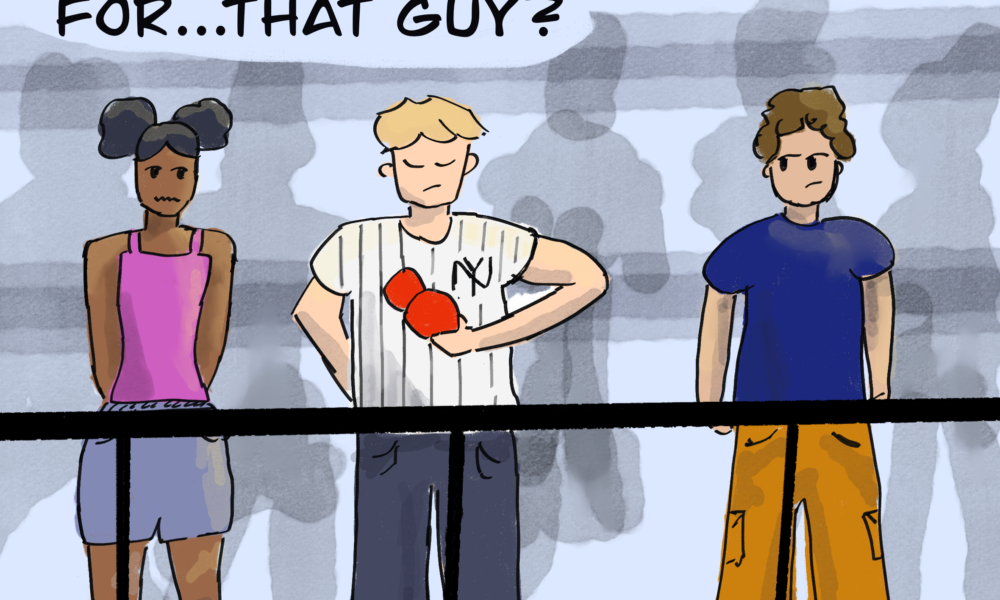On Sept. 10, American right-wing activist and co-founder of Turning Point USA, Charlie Kirk, was fatally shot by Tyler Robinson on the Utah Valley University campus. Kirk’s death has sparked significant debate over the appropriateness of mourning him, given his bigoted political views. Professional athletes’ reactions have ranged from Instagram tributes to on-field measures. For instance, Los Angeles Dodgers pitcher Blake Treinen had Charlie Kirk’s name embroidered on the side of his hat and the New York Yankees held a moment of silence in Kirk’s memory before their game on Sept. 10. These tributes to Kirk illustrate the growing overlap between professional sports and explicit political discourse, raising questions about the messages teams and athletes convey to fans when engaging with polarizing figures.
The Yankees’ tribute to Kirk has sparked conversations around professional sports amplifying political messages, which only benefits teams’ most privileged fans. Many saw the move as a moment of unity, while others pointed out Kirk’s radical rhetoric and controversial views. Kirk was well known as a figure who prompted a rise in right-wing conservatism amongst youth in America: Much of his popularity was cultivated by promoting misinformation and conspiracy theories, particularly through his anti-vaccination views and belief that the 2020 U.S. Presidential election was fraudulent. He emphasized a desire for the U.S. to return to a Christian state, advocated for anti-abortion policies, and supported the Second Amendment. He openly supported the National Rifle Association, despite the United States’ ongoing issues with gun violence. On top of this, Kirk held racist views, once stating, “If I’m dealing with somebody in customer service who’s a moronic Black woman, I wonder is she there because of her excellence, or is she there because of affirmative action?”
The Yankees have received ongoing backlash on social media for their selectivity in memorializing Kirk, as they have not held a moment of silence for any gun violence victims since 2016, after the Pulse nightclub shooting in Orlando. Notably, the team did not hold a moment of silence for the recent death of Melissa Hortman, lawmaker and leader of the Minnesota Democratic Caucus, who was slain along with her husband on June 14 in an act of political violence. This contrast raises questions as to why certain deaths are commemorated while others are ignored, suggesting that the Yankees’ decision to honour Kirk reflects an alignment with the charged nature of what he represented, rather than a consistent solidarity with victims of gun violence.
On the surface, honouring a victim of political assassination may appear neutral, even respectful. Yet in Kirk’s case, given his role in advancing regressive right-wing politics, the gesture legitimizes harmful rhetoric, which can be damaging to the racialized and non-Christian groups Kirk made hateful claims about. Tributes like these blur the lines between memorializing and political endorsement. Further, this choice could create broader acceptance among the Yankees’ fanbase that such exclusionary opinions are justifiable, as Kirk’s life—as much as his death—reignited debates about the point at which political statements become hate speech.
The team doubled down on the right-wing undertones they assumed in holding a moment of silence for Kirk when President Donald Trump attended the Yankees’ next game, honouring the victims of 9/11. By posing for photos with Trump, the Yankees continue to align themselves with his politics, reinforcing the likelihood that their choice to honour Kirk was not a gesture to memorialize gun violence victims, but rather an intentional Republican political positioning.
Ultimately, Kirk’s death highlights broader questions: How far can public figures and institutions go in promoting conservative politics before their platforms become outright exclusionary? What responsibility do sports teams have in deciding which voices to elevate and which to ignore? The Yankees’ tribute to Kirk shows how sports have never been separate from larger political issues. They have reminded us that moments of silence are never truly neutral; they signal whose voices are deemed morally worthy of remembrance.









